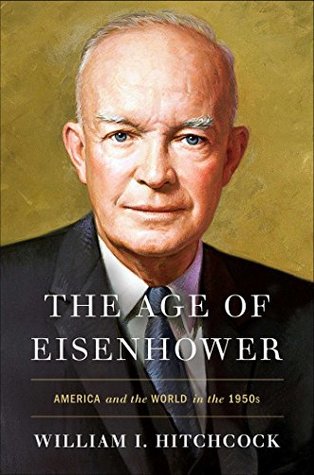More on this book
Community
Kindle Notes & Highlights
Read between
February 13 - March 20, 2019
this book offers a comprehensive account of the president and his times and concludes with a decisive verdict: Dwight Eisenhower must be counted among the most consequential presidents of modern American history.14
he believed that to defend freedom and liberty at home, Americans would have to defend these principles overseas as well.
“Plans are worthless, but planning is everything,” he often remarked. “If you haven’t been planning, you can’t start to work, intelligently at least.”
“NO PRESIDENT HAD EVER HAD so little experience of politics and so little firsthand experience of American life” as Dwight D. Eisenhower, asserted the veteran political journalist Marquis Childs in his 1958 book, The Captive Hero.
That has changed since the ascension of Donald Trump to the Presidency, for he is the first President who never held public office or served in the military prior to his election in 2016.
Over time, close association with MacArthur provided Eisenhower with a role model of the kind of military leader he did not want to be.18
“Humility must always be the portion of any man who receives acclaim earned in the blood of his followers and the sacrifices of his friends.”
Truman had mused in his diary the previous month about the varying quality of U.S. generals: “Don’t see how a country can produce such men as Robert E. Lee, John J. Pershing, Eisenhower and Bradley and at the same time produce Custers, Pattons and MacArthurs.”5
The first year of Eisenhower’s presidency had ended just the way it began: under the shadow of an ever-widening mushroom cloud.
. It is not enough merely to say I love America, and to salute the flag and take off your hat as it goes by, and to help sing the Star Spangled Banner.
on May 31, 1954. Ike wanted to use the occasion to strike out in favor of freedom of thought, and his team of speechwriters prepared a soaring address, whose peroration was aimed clearly at McCarthy. “If we allow ourselves,” he told the audience, “to be persuaded that every individual, or party, that takes issue with our own convictions is necessarily wicked or treasonous—then indeed we are approaching the end of freedom’s road. . . . Our dedication to truth and freedom, at home and abroad, does not require—and cannot tolerate—fear, threat, hysteria, and intimidation.”
the doctrinal content of religious devotion need not divide Americans so long as they shared a basic commitment to faith and belief. The differences between sects paled in contrast to the yawning gap between believers and nonbelievers. And of course the seedbed of such nonbelief was “atheistic Communism.” To believe in God was itself an act of resistance and defiance of communism; however one worshipped God did not matter, so long as one was willing to acknowledge the power of a higher being.4
The ambassador to Italy Clare Boothe Luce, an outspoken hawk and Eisenhower’s friend, wrote Ike a private cable calling for action to rescue the Hungarians: “Let us not ask for whom the bell tolls in Hungary today. It tolls for us if freedom’s holy light is extinguished in blood and iron there.”
his decision to approve the U-2 overflights in the spring of 1960 was the biggest mistake he ever made.
Plans to get Henry Fonda into costume as Abraham Lincoln—a role he had played woodenly in the 1939 film Young Mr. Lincoln—were scotched when Fonda turned out to be a Democrat.


